|
|
|
|
|
|
|
|
Today's Congressional Action:
The House and Senate are in session and expected to consider non-Arctic legislation.
|
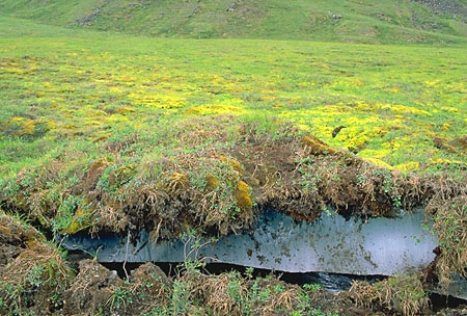 Study: Alaska to Lose Much of its Shallow Permafrost by Century's End. Shallow permafrost lies beneath the surface of more than a third of mainland Alaska, but 16 percent to 24 percent will disappear by the end of the century, a study led by the U.S. Geological Survey says. The study, published in the journal Remote Sensing of Environment, calculates the thaw that is expected to occur as accelerated warming continues in the tundra and boreal ecosystem of the northern latitudes. It uses current mapping data to estimate locations of existing near-surface permafrost, considered to be that which starts within 1 meter below the surface. About 38 percent of mainland Alaska has such permafrost, the study says. Alaska Dispatch News Study: Alaska to Lose Much of its Shallow Permafrost by Century's End. Shallow permafrost lies beneath the surface of more than a third of mainland Alaska, but 16 percent to 24 percent will disappear by the end of the century, a study led by the U.S. Geological Survey says. The study, published in the journal Remote Sensing of Environment, calculates the thaw that is expected to occur as accelerated warming continues in the tundra and boreal ecosystem of the northern latitudes. It uses current mapping data to estimate locations of existing near-surface permafrost, considered to be that which starts within 1 meter below the surface. About 38 percent of mainland Alaska has such permafrost, the study says. Alaska Dispatch News
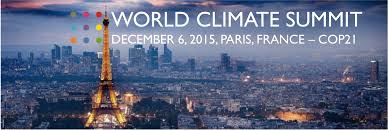 Inuit Call for Action at COP21, Want Global Warming Limited to 1.5 C. The Inuit Circumpolar Council is calling on world leaders meeting in Paris this week to work towards a climate change agreement that will limit global temperatures to an increase of no more 1.5 C by 2100 and to find ways to cut the sources of Arctic warming. But, no matter what global climate change pact is produced Dec. 11 at the end of the COP21 talks, the ICC also wants to make sure Inuit living in developed nations such as Canada gain access to international money to help them adapt to warmer Arctic temperatures. Nunatsiaq Online Inuit Call for Action at COP21, Want Global Warming Limited to 1.5 C. The Inuit Circumpolar Council is calling on world leaders meeting in Paris this week to work towards a climate change agreement that will limit global temperatures to an increase of no more 1.5 C by 2100 and to find ways to cut the sources of Arctic warming. But, no matter what global climate change pact is produced Dec. 11 at the end of the COP21 talks, the ICC also wants to make sure Inuit living in developed nations such as Canada gain access to international money to help them adapt to warmer Arctic temperatures. Nunatsiaq Online
Inuit Leaders in Paris Attempt to Raise Arctic Issues at COP21. When world leaders opened the COP21 climate change conference Nov. 30 in Paris, Inuit who listened closely included leaders like Natan Obed, the president of Inuit Tapiriit Kanatami. After attending the 10th anniversary of the signing of the Nunatsiavut land claims agreement in Nain, Obed heads to Paris Dec. 2. Nunatsiaq Online
Park Service Reports on Climate Change Response in Alaska and Nation. As world leaders began talks in Paris on solutions to global warming, the National Park Service on Monday released a report detailing agency efforts to address threats to national parks from climate change. The report lists 24 case studies in U.S. parks from Maine to American Samoa, including two in Alaska. Interior Secretary Sally Jewell noted the report Monday in Paris, where she was scheduled to meet with delegates to the UNESCO World Heritage Committee and discuss protecting World Heritage sites. Alaska Dispatch News
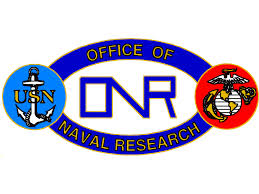 Navy Researchers are Analyzing Findings From Drones Beneath Arctic Ice. The Navy is analyzing research findings from efforts to deploy underwater drones beneath the ice in the Arctic Ocean to assess how quickly the ice is melting and understand how soon the U.S. and Russia will be competing for new strategic waterways in the region. The drones had been measuring the temperature and salt content to help scientists develop more accurate computer models with which to predict the anticipated future pace of melting ice, Martin Jeffries, science advisor to the Office of Naval Research, or ONR, told Scout Warrior. Scout Warrior Navy Researchers are Analyzing Findings From Drones Beneath Arctic Ice. The Navy is analyzing research findings from efforts to deploy underwater drones beneath the ice in the Arctic Ocean to assess how quickly the ice is melting and understand how soon the U.S. and Russia will be competing for new strategic waterways in the region. The drones had been measuring the temperature and salt content to help scientists develop more accurate computer models with which to predict the anticipated future pace of melting ice, Martin Jeffries, science advisor to the Office of Naval Research, or ONR, told Scout Warrior. Scout Warrior
New Mapping Technology Helps Arctic Communities "Keep on Top" of Sea Ice Changes. Like a winter highway, the yearly freeze-up of the fjords and bays that dot the northern coast of Labrador in Canada makes for quicker travel. It opens up hunting possibilities, and it gives people in Nain and other communities a fast track to collect firewood to warm houses and fire stoves. "We look forward to ice forming every year," says Ronald Webb, a 57-year old Inuk (Inuk is the singular form of Inuit) business owner and hunter. "You get a certain freedom when you get out on the ice." Smithsonian Magazine
|
Legislative Action
No Arctic legislation was formally considered yesterday.
|
|
Future Events
The State Department will host this event, streamed online, in coordination with the US Center for COP21.
Moderator: Mayor George Heartwell, Grand Rapids, Michigan
Speakers: Councilwoman Maija Katak Lukin, Kotzebue, Alaska; Mayor Libby Schaaf, Oakland, California; and J°rgen Abildgaard, Executive Climate Project Director, Copenhagen, Denmark
Arctic Council and Beyond, December 4, 2015 (Ottawa, Ontario, Canada).This one-day conference hosted by The Northern Institute will focus on the role of the Arctic Council as a forum for Arctic cooperation, the place of the Arctic in Canada's foreign policy and approach to the circumpolar world, the role of the Arctic in global relations in light of the increasing interest in the region by European and Asian states, and the voice of Indigenous Peoples within the Arctic Council and in shaping circumpolar countries' Arctic policies.
Paris Arctic Climate Research Strategy Meeting, December 4, 2015 (Paris, France). The purpose of this facilitated discussion is to discuss future regional, national, and international funding opportunities for interdisciplinary Arctic climate research and develop concrete ideas for such research. All disciplines across humanities, social and natural sciences, art, health, technology and others as well as representatives of research, government, civil society, business and others are encouraged to attend.
The State Department will host this event, streamed online, in coordination with the US Center for COP21.
Moderator: Christy Goldfuss, Managing Director at the White House Council on Environmental Quality
Speakers: Dr. John Holdren, Assistant to the President for Science and Technology; and Dr. Patrick Taylor, Research Scientist, National Aeronautics and Space Administration
Arctic Encounter Paris (AEP 2015), December 11-12, 2015 (Paris, France) (During the UN Convention on Climate Change - COP21). The Arctic Encounter Paris (AEP) will take place at the French Senate at Luxembourg Palace and the 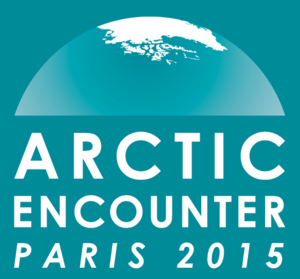 French Military College, ╔cole Militaire, in Paris, France, on the final days of the monumental United Nations Convention on Climate Change (COP21) where thousands of global citizens and government delegates will be gathered to deliberate the world's response to our changing planet in Paris. The AEP is the only Arctic policy and economics side event currently planned to take place during the UN Convention. A reception will take place following the closing panel. French Military College, ╔cole Militaire, in Paris, France, on the final days of the monumental United Nations Convention on Climate Change (COP21) where thousands of global citizens and government delegates will be gathered to deliberate the world's response to our changing planet in Paris. The AEP is the only Arctic policy and economics side event currently planned to take place during the UN Convention. A reception will take place following the closing panel.
 Fall meeting of the American Geophysical Union, December 14-18, 2015 (San Francisco, California). The 48th meeting of the union brings together nearly 24,000attendees, and lots of Arctic research results. The scientific program is here. There will be several Arctic-related "Town Hall" meetings, including those sponsored by NASA, DOE, NSF, ISAC, IARPC, and SEARCH. Fall meeting of the American Geophysical Union, December 14-18, 2015 (San Francisco, California). The 48th meeting of the union brings together nearly 24,000attendees, and lots of Arctic research results. The scientific program is here. There will be several Arctic-related "Town Hall" meetings, including those sponsored by NASA, DOE, NSF, ISAC, IARPC, and SEARCH.
The conference will be devoted to an opening of new academic semester and an upcoming 25 years cooperation between University of Nordland and Baltic State Technical University (St. Petersburg). On the second day the educational project's results "Arctic Bridge: Cooperation on PhD Education and Research Training in the field of Management in Extractive Industries in the High North" will be presented.
"Arctic Matters" day at the National Academy of Sciences, January 14th, 2016 (Washington, DC, USA) This symposium is part of an ongoing initiative of the National Academies of Science Polar Research Board to expand public understanding of why the dramatic changes affecting the Arctic region ultimately matter to us all. The agenda features engaging presentations and discussions with top Arctic science and policy experts, and displays and interactive exhibits that illustrate Arctic change and its global impacts. The event is free and open to the public. There are sponsorship opportunities, and a call for exhibitor applications (by Oct.31, 2015). Audience space is limited, so register today; and please encourage your friends, neighbors, and colleagues to participate-as our goal is to reach well beyond the small circle of specialists who typically attend Arctic-themed events in the DC area. The U.S. Arctic Research Commission is helping to sponsor this event.
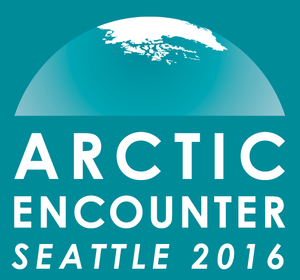 Building upon the preceding Arctic Encounter event in Paris, the third annual Arctic Encounter Symposium (AES) in Seattle, Washington will convene policymakers, industry leaders, and leading experts to confront the leading issues in Arctic policy, innovation, and development. As the largest annual Arctic policy event in the United States, the AES mission is to raise awareness, engage challenges, and develop solutions for the future of a region and a people. The two-day program includes two keynote luncheons, expert plenary sessions, break out sessions, a networking cocktail reception and seated dinner. A closing reception will take place at the conclusion of the program. Building upon the preceding Arctic Encounter event in Paris, the third annual Arctic Encounter Symposium (AES) in Seattle, Washington will convene policymakers, industry leaders, and leading experts to confront the leading issues in Arctic policy, innovation, and development. As the largest annual Arctic policy event in the United States, the AES mission is to raise awareness, engage challenges, and develop solutions for the future of a region and a people. The two-day program includes two keynote luncheons, expert plenary sessions, break out sessions, a networking cocktail reception and seated dinner. A closing reception will take place at the conclusion of the program.
2016 Arctic Frontiers, January 24-29, 2015 (Tromso, Norway).The Arctic is a global crossroad between commercial and environmental interests. The region holds substantial natural resources and many actors are investigating ways to utilise these for economic gain. Others view the Arctic as a particularly pristine and vulnerable environment and highlight the need to limit industrial development. Arctic Frontiers 2016 will discuss the balance between resource utilisation and preservation, and between industrial and environmental interests in the Arctic. Envisioning a well-planned, well-governed, and sustainable development in the Arctic, how can improved Arctic stewardship help balance environmental concerns with industrial expansion? How can the industrial footprints from future business activities be minimised? And last, but not least, what role will existing and emerging technologies play in making industrial development profitable and environmentally friendly, securing a sustainable growth scenario for Arctic communities?
16th Alaska Marine Science Symposium, January 25-29, 2016 (Anchorage, AK, USA). No detailed info yet (common guys...), but a valuable meeting, focusing on research results from the Gulf of Alaska, the Bering Sea, and the Arctic Ocean. Good, in-depth, research from Alaska's marine regions. AMSS.
** New this week** 5th Annual Fletcher Opening Arctic Conference, March 12, 2016. The Opening Arctic Conference builds on the Fletcher School's Warming Arctic International Inquiry series, to bring together high-level thought leaders from across disciplines, Fletcher's hallmark. Staged annually, Fletcher's event continues to address the foreign policy, economic, environmental and security implications of the opening Arctic, while dispelling myths.
14th IATS Seminar, June 19-25, 2016 (Bergen, Norway). The University of Bergen (UiB) is honoured to host the 14th IATS Seminar in Bergen, Norway, from Sunday 19 to Saturday 25 June 2016 in co-operation with the Network for University Co-operation Tibet-Norway, an academic network with the universities of Oslo, Bergen and Troms° as partners. The convenor is Professor Hanna Havnevik, Department of Culture Studies and Oriental Languages, University of Oslo, and Chair of the Network.
ICETECH 2016, August 15-18, 2016 (Anchorage, Alaska, USA). The Arctic Section of the Society of Naval Architects and Marine Engineers (SNAME) together with Alaska's Institute of the North (ION) will host the International Conference and Exhibition on Performance of Ships and Structures in Ice (ICETECH 16), the premiere international conference on ships and structures in ice. The conference will take place in Anchorage starting with an opening icebreaker reception on the evening of Monday, August 15, and concluding in the afternoon on Thursday August 18, with a possible workshop on Arctic EER on Friday August 19.
Inuit traditions are a repository of Inuit culture and a primary expression of Inuit identity. The theme for the 2016 Inuit Studies Conference invites Elders, knowledge-bearers, researchers, artists, policy-makers, students and others to engage in conversations about the many ways in which traditions shape understanding, while registering social and cultural change. The institutional hosts of "Inuit Traditions," Memorial University of Newfoundland and the Nunatsiavut Government, invite you to contribute to an exchange of knowledge to be held in St. John's, Newfoundland and Labrador, October 7-10, 2016. Presentations on all aspects of Inuit studies will be welcome.
|
|

  
4350 N. Fairfax Drive, Suite 510
Arlington, VA 22203, USA
External links in this publication, and on the USARC's World Wide Web site ( www.arctic.gov) do not constitute endorsement by the US Arctic Research Commission of external Web sites or the information, products or services contained therein. For other than authorized activities, the USARC does not exercise any editorial control over the information you may find at these locations. These links are provided consistent with the stated purpose of this newsletter and the USARC Web site.
|
|
|
|
|
|
|
|
|